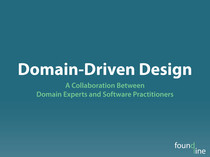Richard M. Stallman (RMS), founder of the free software movement and the Free Software Foundation (FSF), gave a speech on Copyright vs. Community at Saint Michael’s College on Thursday evening, and then a speech on The Free Software Movement at Champlain College on Friday morning. While I don’t agree with all of his ideas, here are a few interesting pieces from his talks.
He equates software freedom with human rights and says that we should have the following four freedoms when it comes to software:
- “The freedom to run the program, for any purpose (freedom 0).
- The freedom to study how the program works, and adapt it to your needs (freedom 1). Access to the source code is a precondition for this.
- The freedom to redistribute copies so you can help your neighbor (freedom 2).
- The freedom to improve the program, and release your improvements to the public, so that the whole community benefits (freedom 3). Access to the source code is a precondition for this.”
RMS seemed more comfortable during his Free Software Movement speech and bit out of his depth in the Copyright vs. Community speech. While I believe he has done a lot of research and thinking about the issue, his attempts to apply these four freedoms to works other than software seemed a bit strained. Having said that, I completely agree that the current copyright system is broken and needs to be fixed to give people more freedom. I am just not sure that the fix is as simple as what he proposes (at least for non-software works).
I completely agree that it is an educational institutions moral duty to only use free software (free as in speech, not free as in beer). I would be interested in hearing from people who have had success in convincing education institutions to switch to free software. I would extend this argument to say that it is the moral duty of our government to only use free software. If it’s payed for with taxpayer money then we should have the four freedoms on that software.




